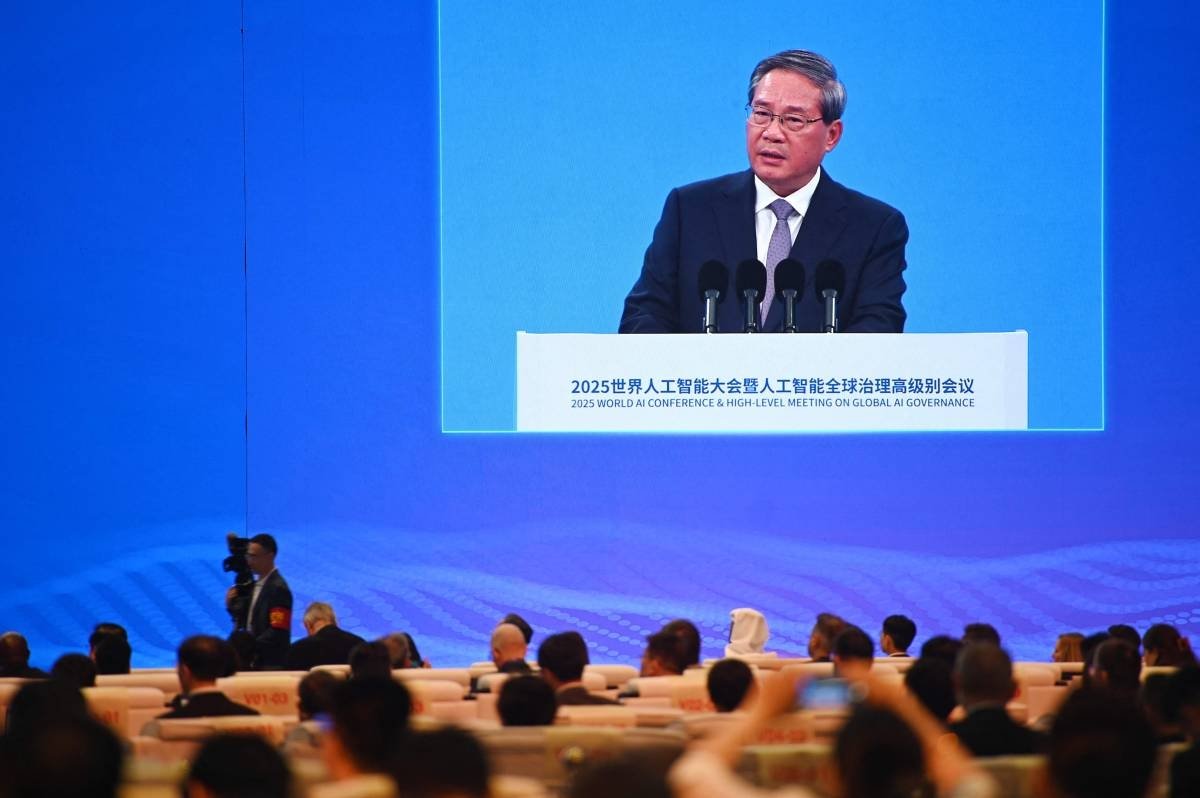In a poignant moment at the recent technology forum in Shanghai, China’s Premier Li Qiang stood before a packed auditorium of innovators, tech giants, and global delegates. “The winds of artificial intelligence (AI) advancement are blowing,” he began, “but we must ensure that it does not become a storm that we cannot weather.”
His words encapsulated a prevailing sentiment that is increasingly echoed across both sides of the Pacific. As the United States and China engage in a fierce tech rivalry, the stakes of AI development have never been higher. Central to Premier Li’s speech was a call for a global consensus on balancing AI’s rapid development with the pressing need for security.
The Global AI Landscape
As AI continues to redefine industries from healthcare to finance, its growth trajectory seems unstoppable. According to a recent report from TechCrunch, global investment in AI technologies exceeded $150 billion in 2022, with projections indicating a rise to $300 billion by 2025. Yet, the technology’s fast-paced evolution presents significant challenges, particularly concerning ethical applications and security risks.
China has been at the forefront of this AI revolution, with companies like Baidu and Alibaba spearheading developments in machine learning and quantum computing. This rapid advancement has raised concerns about the implications of such technology, especially in terms of security and data privacy.
Striking a Balance
Premier Li’s remarks reflect China’s strategy of balancing its tech ambitions with prudence. Beijing is keenly aware that while AI offers economic and technological advantages, it also poses potential threats ranging from job displacement to cybersecurity breaches.
| Country | AI Investment 2022 (in billions) | Project AI Investment 2025 (in billions) |
|---|---|---|
| United States | 70 | 140 |
| China | 50 | 110 |
| European Union | 30 | 50 |
Industry Experts Weigh In
The call for consensus is echoed by many in the tech industry. According to The Verge, industry leaders believe that a collaborative approach is essential to mitigate risks while fostering innovation. “We are at a critical juncture in AI development,” states Dr. Emily Zhao, a leading AI ethics researcher. “International cooperation is the key to ensuring that AI serves humanity beneficially and ethically.”
This sentiment is shared by AI pioneer, Dr. Mark Chen, who noted in an interview with Gizmodo that “the lack of clear global regulations could lead to disparate systems that may not be interoperable or secure. This increases the risk of unintended consequences as different societies adopt AI at varying paces.”
The Road Ahead
To navigate these challenges, Premier Li underscored the importance of setting up multilateral frameworks that include stakeholders from various sectors and countries. This proposal aligns with the broader vision set forth by the United Nations in its AI manifestos.
- Establishing a global AI regulatory body.
- Creating standardized AI ethical guidelines.
- Encouraging AI research collaborations across borders.
Conclusion
As the winds of AI continue to gather momentum, the call for global consensus becomes increasingly urgent. China’s leadership in advocating for a balanced approach highlights a pivotal moment in the interplay between innovation and security. For tech enthusiasts and industry players, the path forward involves embracing collaborative solutions that prioritize ethical considerations alongside technological advancements. This balance is essential to harness the full potential of AI while safeguarding against its inherent risks. For those interested in exploring the nuances of AI development further, major tech outlets such as Wired and CNET provide extensive coverage on these evolving discussions.
Related Reading
- Revolutionizing Health Management: AI Adoption by Over One-Third of Americans
- The Dystopian Future of AI under Trump: Intelligence and Humanity at Stake
- Transforming Communication: Telegram’s Latest Update Boosts Productivity and Engagement






[…] AI-powered blood test improves early Lyme disease detection More Power adopts AI in core operations to boost service China’s Premier Li Qiang says AI progress needs regulation, not just speed, calls for global cooperation BPO employees hold pre-SONA protest China wants consensus on balancing AI […]
[…] regulation, not just speed, calls for global cooperation BPO employees hold pre-SONA protest China wants consensus on balancing AI AI Revolution in Health Management: Over 1 in 3 Americans on Board AI Revolution in […]
[…] employees hold pre-SONA protest China wants consensus on balancing AI AI Revolution in Health Management: Over 1 in 3 Americans on Board AI Revolution in […]